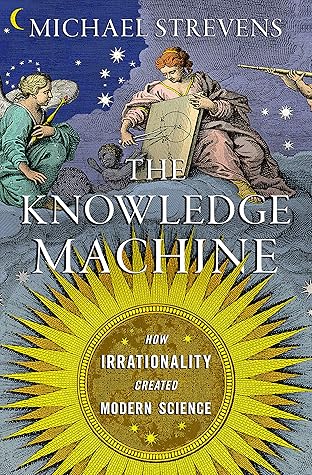More on this book
Community
Kindle Notes & Highlights
The natural philosophy that came before the Scientific Revolution was not less creative than modern science, and as practiced by thinkers such as Aristotle was no less methodical and no less concerned with the evidence of the senses. Yet something, it seems, was missing.
The rule that governs science and explains its success is far weaker, however, than the methodists have supposed: it tells you what counts as evidence but offers no system for interpreting that evidence. Indeed, it says nothing about the significance of evidence at all. Further, the rule does not reside where the methodists have expected to find it, in scientists’ heads. It does not tell scientists what to think privately; it merely regulates how they argue publicly. It is not a method of reasoning but a kind of speech code, a set of ground rules for debate, compelling scientists to conduct
...more
But the centuries since the Scientific Revolution are strewn with cases in which science’s biggest names can be seen discarding or distorting difficult data so as to create the impression that experiment was in perfect harmony with their theoretical or other aims.
understand the episode rather as a kind of real-life parable, illustrating the fact that in the scientific process, the weighing of the evidence—the tribunal’s task—is seldom objective, seldom particularly methodical, always open to personal and political influence, and ever issuing decisions that are guided as much by expedience as by logic.
It looks as though something is guiding the science above and beyond cold, hard facts, something that closely shadows cold, hard cash.
But the lesson is clear: the outcome of the scientific process is powerfully influenced by the aims and interests of its practitioners, from Eddington’s desire for a European peace to the more utilitarian concerns of researchers funded by Big Tobacco or Big Soda. That is one sense in which science is, in spite of the methodists’ hopes, decidedly subjective.
inaction may be disastrous, as now seems to have been true in the case of global climate change.
The Great Method Debate is an argument over a fiction. That is the thesis, endorsed by many contemporary sociologists and historians of science, that I call radical subjectivism. It is the antithesis of methodism.
The radical subjectivists are, I think, right about the subjectivity of science. But they cannot be right in their further claim, that there is nothing whatsoever to distinguish science from ordinary thought or philosophical contemplation. That would explain everything about the messy human business of scientific inquiry except what matters most: the great wave of progress that followed the Scientific Revolution. Medical progress, technological progress, and progress in understanding how it all hangs together, how everything works. Immense, undeniable, life-changing progress.
Not only human nature but also the very laws of logic contend against the possibility of objectivity in scientific thought.
In 1936, Stalin oversaw the introduction of a new constitution in the USSR, guaranteeing freedom of speech, freedom of the press, freedom of assembly, and freedom to demonstrate in the streets. By 1937, his regime was executing perhaps one thousand people every day. Sometimes the finest words are nothing more than words. So it is, according to the more radical of the subjectivists, with the iron rule. It is the Soviet constitution, the Marlboro Man, Arbeit macht frei.


